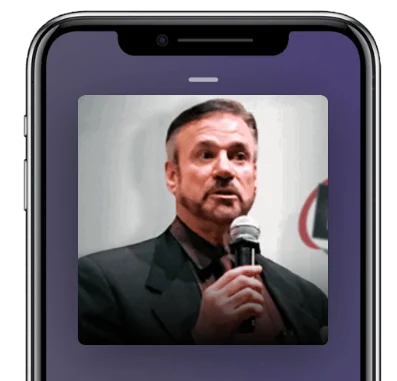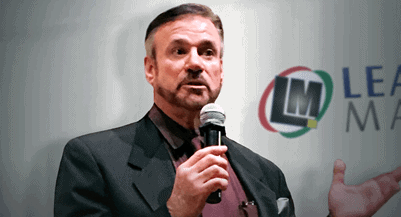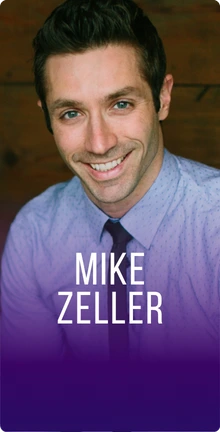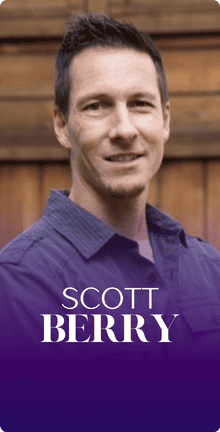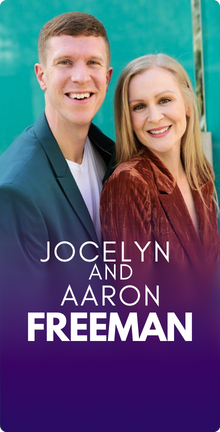Thank you. It’s a pleasure to be here.
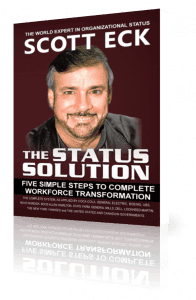
Let’s talk about status since that is, after all, a keyword in your book title, The Status Solution. You speak about status so much in presentations and workshops. What’s important about status? Before I started talking to you, I thought that was an ego thing.
It is an ego thing. The ego is constantly trying to raise our sense of self-esteem and raise our personal status, but the problem that we can get into is that too often in order to raise our own personal status, we lower the status of others. That’s when our ego and status manipulation can get into trouble. These days in the world as you can see with different polarized groups and opposing messages, much of the time we’re spending is lowering the status of others in order to raise our own status. Our theory is that the only authentic way to raise our own status is to raise the status of others in an authentic way.
How do you do that authentically then?
You have to see the best in the person, their potential and not look at individuals and groups as threats or as being opposed to your views or as a danger. The brain, which is our chief survival tool, its job is to look for what’s wrong in any given situation. Look for the threat that exists. Oftentimes the brain will find what’s disagreeable in an individual or in a group and then the ego will immediately get to work to lower their status in order to raise their own. It’s a coping and defense strategy that’s been part of human nature since the beginning of time. What we do with our corporate clients is to try to help them see how the brain and the ego work together oftentimes to separate us from individuals and from groups when we want to come together. When we can come together as individuals and as groups, we can always accomplish more, create more and solve more problems easier, more effectively and more efficiently. We’re in the business of trying to help people retrain their brains to look for what’s right in any given situation and to retrain the ego to raise status rather than lower it. You do that authentically by looking for what’s best in the human being that’s in front of you first, rather than what threat they may pose.
What happens when you’ve raised the status of somebody in a group? How does that help you?
Whenever you raise the status of any individual or group, you raise your own status in the eyes of others. That’s the optimal way that raising status works. You have to do it in an authentic way. It can’t be flattery or manipulation. Flattery and manipulation are just that. If you can authentically look for the best in each individual that you come into contact with whether that’s the parking lot attendant or the CEO of a major organization, if you can look for the best in that individual and recognize it, give voice to it and support it, then you’re empowering that other individual or that other group. At the same time, you’re empowering yourself.
In the Rules of Status, we focus on not only raising the status of others, which is part of rule number two. We really focus on rules three and four. On rule three, whenever you raise the status of a colleague or a customer you not only raise your own status, you raise the status of the entire organization. Rule number four is rapid growth can only occur when all parties involved and any human transaction are operating on an equal high-status basis.
Whenever you raise the status of any individual or group, you raise your own status in the eyes of others. Share on XLet’s restate that one because there’s a lot in that fourth rule. Rapid growth can only occur when all parties involved in any human transaction are operating on an equal high-status basis. What does that mean? Give us a hypothetical situation.
Let’s look at relationships. I happen to know that you were involved in a fantastic marriage with a very lovely, intelligent, smart, funny and capable woman. You and Orion, in order for your marriage to work, you have to consistently assign each other equal high status. As you consistently assign each other equal high status, the marriage grows, the relationship grows. You’re able to do more. You’re able to do more together. You’re able to accomplish more, think better, be a better husband and a better father, a better member of your community due to the mutual support that occurs while you are assigning each other equal high status. I’ve had the same best friend for almost 45 years. The reason why that friendship has sustained itself and grown is that we consistently assign each other equally high status. Therefore, the relationship grows.
There are going to be times in any marriage, any friendship or any relationship where there are disparities in status assignments where you’re going to assign each other a lower status. That’s always going to be a problem. I hate to think about it but there may have been times when you’ve had to sleep on the sofa as I have. Those are low-status situations. There are those moments in any relationship where there are disparities in status assignments where equal high status is not being assigned and shared. That’s part and parcel again to the human experience and human nature. If you want to grow and you want to grow rapidly, then equal high status has to be assigned and shared by every individual in the group and all groups that are interacting in order for rapid growth to occur.
I could see when you have a power differential in a relationship of any sort, whether it’s friendship or work colleagues or in a marriage, that power differential creates almost like a nemesis. The other person, if they’re lower status than you, they feel like the underdog and that they have to fight for what’s right, fight for their piece of the pie. As the higher status person, you’re always right and that you’re justifying your position and everything and it’s a recipe for disaster for both people.
What we’re seeing globally is a lot of uncertainty in the world. There’s a lot of uncertainty in our global leadership, in our institutions, both global and domestic and national. There is a lot of fear regarding terrorism. There is corruption in institutions. What that does is that it inspires people to want to have more certainty in their lives, more control. Because of that uncertainty in the external environment, the brain is merely kicked into gear to look for what’s wrong to look for the threat. Then as soon as we start looking for what’s wrong in both situations and in people, then the danger is there for that control mechanism to kick in. Then immediately, the ego will want to raise our personal status and lower the status of others. By lowering the status of others in order to raise our own status, it gives us a sense of certainty. It gives us a sense of control. It gives us that sense of power.
That’s where division begins. You see groups attacking other groups. You’ve seen it all throughout social media, certainly. You’re seeing it between nations on the Earth and between cultures. We’re hoping that with The Status Solution, people can see another way or just another way forward by again retraining the brain to look for what’s right and retraining the ego to see what’s best in the individuals and the groups. To tap into that to find that common ground so that equalized status can be assigned and shared, and then rapid growth can occur. That’s what we’re hoping for.
No matter how divisive the politics or the perceptions are, if you can see the other’s point of view, the old cliché is to walk a mile in their shoes. If you can see where they’re coming from rather than automatically assign that point of view low status, then you’re going to go a long way in being able to find that common ground, assign each other equalized status, come together and grow. That’s the objective. It’s something we’ve been teaching Fortune 100 organizations now for years. It’s had a profound effect throughout the world and we’re pretty proud of that. We don’t do it to blow our own horn, we do it to help people. In the era that we’re in now, we need all the help we can get because there are so many polarized issues and groups out there and so much low status being thrown around. It’s a low-status bloodbath these days, especially in the United States.

People want certainty and control. They are looking at what’s wrong. Their brains are wired for that and we need to rewire it, so it’s looking for what’s right in the world instead of what’s wrong.
You’re never going to stop the brain from looking for a threat in any given situation. The brain is always going to do that. At the same time, once the brain has determined that there is no real threat, then you can just go into the part of your brain that is compassionate, generous, patient, kind and curious. If you can engage that part of the brain immediately, then you’re going to go a long way towards equalizing status and growing.
Is that the solution from looking for what’s wrong to looking for what’s right? Is it just to engage the curiosity or that part of your brain that is curious?
The solution for us is recognizing what the brain is doing and what the ego is doing and then making a decision to do something else or to train the brain, to get the brain to make that shift, for the ego to stay under control. The ego wants to always elevate our sense of personal value and self-esteem. If you can do that by acknowledging the personal value and the status of the other person in the room or the other group in the room, then you’re going to immediately raise your own status in the eyes of that other individual and the other group. The solution is understanding that your brain is wired to look for what’s wrong in any given situation and that your ego is wired to raise your status and often does so manifest by lowering the status of others.
Is the ego bad or is it good? Is it maligned in a misguided way and it’s there for our benefits in some way? What do you think the ego is about?
The ego is there for a very good reason. I don’t ever want to put down the ego because it’s part of our survival toolkit. The ego’s job is to make sure that we have a sense of self-worth, self-value, self-esteem and high status at all times. Where the ego goes off the rails is when it raises our status by lowering the status of others. We try to help people see that. If I said, “Stephan, you’re a no-good SOB. You have no right doing these podcasts. Nobody wants them. Nobody likes them. They don’t provide any value.” None of those statements are true. That’s my ego attempting to lower your status so that in my ego’s world, I raised my own.
The truth is if my ego wants to see it, the people that you speak to, the podcast the information that you put out to the world is meant to add value. It’s to help people understand more, to help people get in touch with what’s valuable about the human experience and the human journey. That’s what you do and that’s a fact. I’m not stating anything that’s not true. I’m not trying to manipulate you in any way or trying to flatter you in any way. That’s simply what you do. Those facts can be seen. They are out there for all to witness. I don’t need to say, “Stephan, you’re such a snappy dresser. I love the car that you drive. I want to be with you because you’re stylish.” Now we’re into inauthentic flattery. I’m raising the status in an inauthentic way, but my ego will do that as well if it thinks I can get something from you. What we want to do is try to keep the ego in check when it’s using flattery in an incongruent way and an authentic way. We want the ego to be able to see the truth and speak the truth in a high-status way.
The ego's job is to make sure that we have a sense of self-worth, self-value, self-esteem, and high status at all times. Share on XHow do you get these points across? I know you have a very unique style of doing it in these corporate trainings. You have a storytelling approach to it that’s cool. I’d love for you to describe it to our audience because I got to experience some of it myself in a mastermind. It’s very unique. I have not learned in that environment in that way before.
We’re very proud of what we do. It’s a very unique teaching style. Leadership Masters, we’ve been in business for 31 years and we’ve enjoyed very long relationships with some extraordinary clients starting with GE in 1987. GE has been a client of ours since 1987 for 31 years. We’ve also had long relationships with the Boeing Company, Coca-Cola, State Farm, Dell, Lockheed Martin, Booz Allen Hamilton and General Mills. The list goes on including pharmaceutical companies, Novo Nordisk, Merck and Pfizer. The reason why our teaching methods are powerful is that we use the theater to teach awareness of human behavior.
We have a series of leadership theater events based on great leaders in history who learn to govern their brains and their egos in such a way where they were able to accomplish incredible things. We have a program called the Shackleton Experience based on the life and leadership skill set of Sir Ernest Shackleton, the polar explorer. We have a leadership theater piece called The Mandela Architecture. Nelson Mandela, while he was in prison on Robben Island and in Pollsmoor prison, created an architecture, a blueprint for his own high-status behavior. While he was in prison, he developed specific tools and techniques to retrain his brain to look for what was right in any given situation and retrain his ego to look for what was best in individuals and groups, so that when he was finally released from prison, he was able to unite the people of South Africa in a way that they’ve never been united before. He had an actual blueprint for doing so. We show that in that leadership theater piece.
We have a piece called Gandhi: My Life Is My Message showing how Mohandas K. Gandhi did the exact same thing. He trained his brain and his ego to stand down and those tools and skill sets enabled him to create an independent state of India and did it all in a nonviolent way. We have a program based on diversity and inclusion called Elizabeth I: Diversity & Governance based on the life of Queen Elizabeth I who inherited an extraordinarily chaotic and violent situation from her father Henry VIII and her sister, Mary I, known as Bloody Mary.
We have other programs as well. I have a great team one called The Enigma Team based on the Bletchley Park Codebreakers. In addition to theatrical scenes, each leadership theater presentation has work periods in between the theatrical scenes so that you can take what you’re learning by witnessing the actual behavior. All the actors are Broadway or West End caliber actors. We have teams in London as well as in New York, St. Louis and Los Angeles. The quality of the acting is extraordinary, the quality of the writing is extraordinary, props, costumes. It’s an entire theatrical learning experience. If you’ve gone to see an amazing play on Broadway, imagine having that type of experience in a classroom setting where you are not only engaged emotionally and psychologically in addition to intellectually, but you’re also in a place of learning viscerally instead of just intellectual. You’re learning emotionally instead of just intellectually. You’re learning psychologically.
That’s where we see the greatest amount of impact and where the greatest shift can come within individuals if they’re engaged as a full human being learning emotionally intellectually, psychologically, and viscerally at the same time. What you witnessed in San Diego was just a small taste of the capability that we have and have exercised over our 31 years in business. You did get to see the Status Café, which is one of our favorites. It teaches the basics of status. That’s what we do. We’re very unique. In my 31 years, I’ve never come across another organization that does what we do and how we do it. Because of the way we do what we do, it’s always high status. We’ve maintained these lengthy relationships with our corporate clients and we’re very proud of that. Thanks for asking.
Let’s talk about the Status Café because that was one that I got to experience firsthand. What would be a little scene or a little piece from that show that would give our audience a taste of what it’s like?
It’s a very simple scenario. It’s a scenario that everyone recognizes. It’s an individual who assigns themselves high status at all times and is in the practice of assigning others low status. This is simply human nature. This is not a judgment on this type of individual. Normally, my partner, Jim Deken, who runs our St. Louis office is the customer who enters into a small café to have lunch. The server, the waiter or waitress will always assign the customer a very high status because they’re in the service industry and they want the customer to not only have a good experience but also to return often because of that experience. In the Status Café, we simply show how certain types of individuals will automatically assign other individuals and groups low status based on the role that they are playing in that specific instance or situation.

Jim comes and sits down. He is completely unimpressed by the menu. He is unimpressed by the waiter or waitress and orders a lunch that can be served quickly because he’s got a very important meeting coming up in half an hour back at his office. He orders just a simple salad. He does so in a very low-status way, lowering the status of the server. The question that I ask because I narrate the Status Café or a member of my team does, we have Jim then call back to his assistant back in the office who he also assigns low status to. He berates the young man on the telephone. He lowers his status again in an attempt to raise his own, to make sure that the assistant knows who the boss is. He’s exerting that type of power and control that you talked about in order to make sure that the assistant maintained his place of low status while creating certainty in the high status of the individual.
What the audience sees is that by lowering the status of the waitress, by lowering the status of the assistant, the individual in question is lowering his own status in the eyes of others. The audience sees this for themselves. They see the brain and the ego at work and everybody knows individuals like this on the Earth. Everybody has worked for someone who exerts their control and their power by lowering the status of others in an attempt to raise their own status. We see that played out in front of us. Actual human behavior that all of us recognize, all of us know and all of us can identify with. Jim waits for his salad for fifteen, twenty minutes. There’s no sign of the waitress. When she comes back into the serving area, she’s empty-handed. Jim is now going to be late for his meeting. She only gets out two words and those two words are, “I’m sorry.”
Jim’s character then absolutely blasts her. He berates her. He diminishes her, he demeans her in an attempt to lower her status as far as he can possibly lower it. Then the waitress explains to Jim’s character the reason why she was unable to deliver him is lunch on time was because when she went to put the order in at the kitchen, she heard a screech of tires from the street behind the restaurant kitchen. When she and the chef went out to look, they saw that a five-year-old child had been hit by a car. There were no adults in the area. The child’s parents or siblings were nowhere to be seen. The chef called 911 and waited for the ambulance to arrive and then went to the hospital with the child.
This presents Jim’s character with a choice. He can either continue acting like a complete low-status nightmare or he can have the realization that there are more things in the human journey more important than himself and his concerns and his needs. That’s the choice that we present in the Status Café. The choice to see others as having value no matter what role they are playing as they enter your sphere of influence. That all groups have value no matter what their sociopolitical views are. There is a way to train the brain to see what’s right in any given situation, to see what’s good in people, and to train the ego to acknowledge those things that are right in this situation and those things that are good in other individuals.
It’s like a massive light bulb going on over the groups that we present to when we show them the Status Café and they get it. When they get it, then they’re able to make a decision as to how they’re going to go forward with their brains constantly looking for what’s wrong or just looking for a threat and then looking for what’s right. The ego attempting to constantly elevate their self-esteem and status by lowering the status of others or make the choice to have your ego tamed in a way that you raise your own status by raising the status of others. The Status Café has been a staple exercise in Leadership Masters’ group of offerings for years. We’ve been doing it from the very beginning to help people understand how status is assigned and manipulated and how it can serve us going forward.
Keep the ego in check when it's using flattery in an incongruent way and inauthentic way. Share on XRule number one of your five rules of status is that whenever you lower the status of anyone or anything, you lower your own status in the eyes of others and that makes sense and people can get that logically. When you get that emotionally, viscerally even by watching this play out with this nightmare of a person you think, “This guy is not a good human being.” That’s the judgment and everyone has many sides to them, but when you see that playing out and you react to that person viscerally like, “This person is the most nightmarish of people.” You really get that first rule.
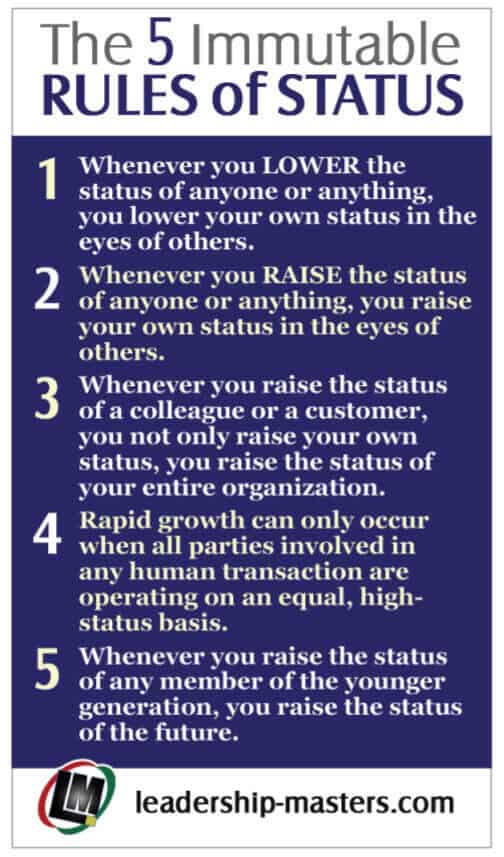
If you understand the roles of status, you can then start to ask questions and make inquiries as to what the backstory is. Stephen Covey tells an amazing story in his book, The 7 Habits of Highly Effective People about being on a New York subway one day. Are you familiar with that story? Have you heard that story before?
No.
Stephen Covey’s on a subway train in New York City and this train stops at a station and onboard comes this gentleman with his three boys all between the ages of eight and twelve. The three boys start tearing around the subway train. They’re pulling newspapers away from people. They’re jumping around and causing a big ruckus. This went on for two or three stops and Stephen Covey eventually approached them and said, “Sir, are those children yours?” He said, “Yes, they are.” He said, “Don’t you have any sense of shame over the way that they’re behaving? Can’t you get them under control?” He says, “I suppose I should, but we just came from the hospital and they just watched their mother die.” You never know the backstory of an individual who’s lowering status unless you ask, but most people don’t ask. They simply make those snap judgments. Most of the time the snap judgment is coming from the ego assigning that individual or that group the low status rather than taking the time, investing the time to simply ask the questions, “What’s going on? What’s happening here? How can I help?”
This reminds me of a story that I shared in a previous episode where I talked about how I had this conflict with my neighbor upstairs because he would randomly turn up music at any time of the day or night. It just didn’t seem to make any sense. It would be blaring and it would be very disruptive. I might be on a podcast interview and it starts interfering with my ability to conduct the interview. I was very frustrated and I was just thinking about like what is it like for me? I was never curious, “What is going on with him that he would do that?” Yet, there was a back story there that I came to find out later. I had asked my Kabbalah teacher, “What do we do about this guy? We’re looking to move out. We’ve been apartment hunting and stuff because we can’t take it anymore.” He said, “The solution isn’t to go find another apartment. The solution is to send him light, to pray for the guy.”
I did and so did my wife, Orion, and we had this breakthrough. I saw him in the elevator. Normally, I would have exited the elevator immediately as he was entering, even if I had to walk up some stairs, but I invited him in. Then I turned to him and I told him I was sorry that I called the cops on him because we were in this escalating war where I’d call the cops. Then he would make me pay for that by waking me and Orion up in the middle of the night by pounding furniture on our ceiling on his floor. I apologized. He told me, “I appreciate that. I’m suffering from PTSD. When I turn up the music, it’s because I’m trying to cope with the anxiety attack that I am having at the time.” That made a lot of sense because I don’t know a lot about PTSD, but I’ve seen some movies like The Accountant for example. When you have these attacks, you blast music to cope and just like in that movie, The Accountant. I got it and it totally changed. Also, he told me that somebody had tried to murder him and that’s how he ended up with PTSD and that was years ago.

That completely changed my perspective. I would never have learned that if I didn’t have the humility and grace to apologize to him. Once I did, that completely transformed the whole relationship and now I don’t have issues with him. He’s much more conscientious about not blasting music. Even if he’s having an attack panic attack, he’ll deal with it differently because he’s more aware of the impact it’s having on us downstairs. I appreciate that and that’s helped reveal a lot of light in the world just this interaction between the two of us. It raised the status of both of us.
It happens, and then and then you start to grow.
I don’t see him as an adversary. I don’t see him as a low-status person. I see him as a human soul just like me.
He sees the same thing in you. Every human being on the planet from the beginning of time has specific coping strategies that allow them to survive in an extremely hostile and dangerous world. If we just take the time, and most of us don’t, but if we take the time to understand each other’s coping strategies, then we can go a long way to elevating their status authentically, which in turn authentically elevates our own. That’s what happened in that situation. You presented yourself with a choice. You made a decision and you took action. It’s a very simple process but retraining the brain and the ego takes time. Then you have to repeat that practice until it becomes a skill set. That moment was a profound moment for you. It’s probably a moment that you’ll never forget. It’s one of those soul-learning moments. It’s the same with Stephen Covey’s story when he was in the subway train. There were a soul-changing and life-changing moment for him when he realized that if he simply made inquiries into what the backstory is, then he would have a greater understanding. He would be able to elevate status in an authentic way.
What a gift it was that that happened to him that he was able to not just learn from that and adapt but share that with the world, to have the vulnerability to share that less than amazing moment of his own failings and judgment.
What a great gift it was for you to have that same type of moment of clarity, that life-changing moment of clarity where you could then understand a whole new process for dealing with difficult situations and difficult individuals. Now you have a whole new process opened up to you that’s going to enable you to add even more value to the planet. It’s an incredible gift. Every challenge that we have in our life is a gift. It gives us the opportunity to learn something new, to incorporate a new set of decisions, choices and actions in our lives that will ultimately help others. As we help others, we help ourselves.
It’s a gift that was brought to us by the Creator, by our Higher Power. We see these people that we’re in conflict with is as adversaries or the enemy, but the enemy is actually within us. It’s our internal script, the negative little voice in our heads.
As Nelson Mandela said, “Our reaction is the enemy.” Nelson Mandela, while he was in Robben Island prison, taught himself to be responsive rather than reactive. In his book, Conversations With Myself, he says, “Just look and listen to those two words, reactive and responsive. You react with emotion, you respond with thought. Eventually, you respond not just with thought but also with your heart.” His entire process was teaching himself to be a high-status practitioner. The words to apply a high status to all individuals all situations no matter the backstory, no matter how much anger and vitriol were part of that individual or group’s makeup, he always responded instead of reacted whenever possible.
All groups have value no matter what their social-political views are. Share on XThere are times when people are going to push buttons. I don’t know if your kids do it, but mine certainly try and you react when you really should want to respond. Nobody’s perfect. We’re not saints here but if we can develop that skill set, just like the skill set that you’ve developed where you take the time to discover and make inquiries as to what the backstory is. Be compassionate, patient, gracious, gentle and kind in dealing with that backstory. You’re going to raise the status of the other individual or group and that in turn is going to raise your own personal status in their eyes and in the eyes of the world.
You’ve got this fifth rule of status that whenever you raise the status of any member of the younger generation, you raise the status of the future. Could you elaborate a bit on that?
The younger generation is always getting hammered by the older generation. We label them Generation X, Generation Y. We now labeled the young people in the workplace demographically as Millennials. In essence, we’re lowering their status in order to raise our own. I hear my Fortune 100 clients complain all the time, “These people have no sense of loyalty. They want the world and all that’s in it. We train them for a year and then they go to work for Google. These people have no personal accountability.” I have a 21-year-old daughter so I have a Millennial guinea pig in my family that I’m able to interact with and talk to about what she wants out of life. Millennials as they as they’re called by my most of my Fortune 100 clients, young people, they want something a little bit different than a career track and certainty. They want to have the opportunity to have life-changing experiences that add value every single day.
I think that’s a good thing. My advice to my Fortune 100 clients is create high status environments where these young people have the opportunity to change people’s lives and add value every day. They don’t have to do it every day. As long as the environment is in place for that possibility to exist, then you’re never going to lose them. They’re not going to leave your organization because then they have what they need. They have what they want. They have what they’re looking for the opportunity to create life-changing, value-adding experiences every single day. I try to help my clients see that the younger generation is never the enemy. They are the future. They are the hope for the future.
Truth be told the world that we’re passing onto the younger generation is not in very good shape. I don’t want to say that it’s worse than the world that you and I inherited from our parents, but it’s certainly not a perfect world. It is very far from a perfect world and there’s work to be done. That work has to be done by us, but the hard work is going to be done by the young people on the planet. I would also go on to say that part of rule five is whenever you raise the status of any member of the older generation, you not only raise your own status, but you raise the status of your organization’s legacy, its brand and its impact on the world. That rule can go both ways as far as younger or older generations. In the book, it specifies the younger because I wrote the book at the request of my clients and I wrote it for my clients. For the most part, they’re having trouble dealing with the younger generation that they call Millennials or as one CEO calls them, the dark side. I said, “John, that’s a low status assignment.” He says, “I don’t care.” I said, “That’s another low-status assignment.” He says, “I still don’t care.”
The minute he sees the opportunities presented by the approach taken by the younger generation, which is to be able to have and share a life-changing experience on a day-to-day basis, if you can create that environment where that level of value is added and the opportunity to add that value is there in the environment every day, no one is going to want to leave that place of work. You’ll never have a problem attracting or retaining talent if you create an environment that is so high status that you are having a positive impact on human life nearly every day, once a week once a month, it doesn’t matter. As long as the environment is in place for you to have that impact, no one’s going to leave you.

What would be an example of a client of yours that has implemented some changes based on your recommendations around status, that has changed the culture and made these Millennials or younger folks more loyal or more productive and also higher status?
I’m proud of all of our corporate clients. One story about a very famous national insurance company who completely changed their organizational structure years ago. On paper, it looked like that they were taking the individual decision-making power away from individual insurance agents and transferring that power to central offices. When they announced the change, the individual agents became very upset. They had built their individual satellite businesses based on great customer service, personal customer service being able to interact with their customers and they felt that this was a massive error by the organization. There was a huge backlash against the organization by these agents and a lot of high-profile agents quit over the announcement of the structural changes.
That was again an example of reaction versus response. Had these agents taken a moment to look at the entire organizational plan going forward, they would have seen that what the organization was trying to do was free up these agents as far as time so that they would have more time to deal with their customers effectively and efficiently. They were trying to take a lot of the administrative issues and time-consuming paperwork off of their plates. Initially, whenever an organizational change is announced, most human beings react negatively to change. The reaction from these agents was, “They’re taking away my power. They’re lowering my status.” This insurance company called us to go from region to region and show them through a bunch of theatrical representations and other exercises. Not the Status Café but one that we built specifically, another exercise that we dealt specifically for this insurance company showing them the same type of process where you can see what’s happening, make a decision for yourself and take action.
I’m not saying that we rode on a white horse and saved the day. We just helped people see what they already knew in their hearts, that this organization is a great organization, a nationally-recognized insurance company that’s been around forever and a day. They eventually were able to see that what the organization was trying to do was not take away power and control but to give more power and control. There was an adjustment period, there always is, a ramp up time. We like to think that we helped in this process. Eventually things came back to a sense of stability and people then started to respond once again rather than react. In that case, as Nelson Mandela said, “The reaction was the enemy,” they lost a few very high profile, high-performing individual agents. It wasn’t because of anything the organization was doing, it was because of the reaction that was indeed the enemy, those particular agents. That’s just one example.
I’m proud of all my clients. We’re helping Coca-Cola with a project that they’ve announced, an eight-year project called Vision 2020 where they announced it in 2012. I talked about this in my book and they are going to double the size of the Coca-Cola Company in eight years. You talk about reaction. There was a lot of reaction and a lot of resistance. Anytime an organization announces any type of structural change or organizational change, anytime there’s a change in the C-suite, the leadership team of any organization, there’s going to be resistance. There’s going to be reaction. What you want to try to do and what we try to do is help people understand that reaction, help them understand the resistance, help them understand the fear, and then help them make a better decision, a better choice and to take positive action. That’s basically what Leadership Masters does.
In the book, you have another story that you shared when we were at that mastermind that I’ve found very instructive. It was about NASA and how working on the space shuttle had this seemingly insurmountable problem. If you want to share that, it drives home the point not only that reaction is the enemy but also is judgment. Assuming that somebody because you see them as a lower status that they don’t have any answers, they don’t have any value to bring. It’s such a mistaken and misguided notion. Could you share that story?
This story was shared by an executive of the Boeing Company. We were teaching a seminar in status at the Boeing Leadership Center in Florissant, Missouri, which is a suburb of St. Louis. We were part of the Boeing Executive Program One and then Boeing Executive Program Two, both of those programs which were helping the top 6,000 executives in the Boeing Company. It was helping them to become more effective leaders. A lot of the population of Boeing in the executive ranks are former military members. The military command and control style of leadership works great in the military, but it doesn’t translate all that effectively to the corporate environment.
Every challenge that we have in our life is a gift. Share on XWe’re helping them see how command and control matches up to high-status environments. We had gone through an exercise based on raising status or recognizing high status in what are assumed or perceived to be low status positions. Once the exercise was over, I asked the audience of about 50 Boeing executives if anyone could provide me with an example. This gentleman provided the most incredible example. He told me that he was assigned as an engineer to the Space Shuttle Program. They came up against a massive problem in that the launcher for the shuttle, the booster rocket that would put the space shuttle into orbit was overweight by 1,800 pounds, which would affect the lift and trajectory. He and his team of engineers were given the responsibility to find a way to reduce the weight by 1,800 pounds in order to create the proper lift and trajectory weight.
He and his team worked for a few months and they reduced it by 600 pounds by using manmade composites and resins instead of steel, but they were still 1,200 pounds overweight. They came together with some of the greatest engineers from a number of different organizations, Lockheed Martin and Northrop Grumman and they all went down to the NASA’s Space Center to go over the launcher. From my recollection, they were down there for about a week and they could not find a way to lower the weight. They were constantly looking for ways but they couldn’t find anything that would substantially reduce the weight.
Every day these fourteen engineers would go into the launch area where the shuttle and the booster rocket were, they would be greeted by a gentleman in coveralls who would unlock the gate, slide the gate open. These fourteen engineers would go through and then this gentleman would lock the gate and secure it with all of the electronic surveillance equipment. No one ever spoke to this man except one of the engineers on the first morning. He thanked him for opening the gate and asked his name. Then at the end of the day, the first day the same gentleman thanked the man in coveralls for again being there to open the gate and closing it for him. He thanked him by name. Every morning all the other engineers would just walk through the gate. This one man was always last and always stopped to thank the gentleman in coveralls. He will talk to him, again addressed him by name, asked him how his family was and same thing at the end of the evening.
By the end of the week, this one engineer and the Coverall Man, as I called him, had developed a relationship based on equal high status. The engineer assigned the man in coveralls equal high status by addressing him by name, asking about his family, how his week was going and the man in coveralls did the same with the engineer, how are things going. At the end of the week, the engineers came out dejected and then one engineer again was the last one through the gate stopped and the man in coverall said, “Were you able to solve your problem?” The engineer said, “No. We’re trying to reduce the weight of that booster rocket by 1,200 pounds. We have tried everything and we just can’t do it. I don’t suppose the Space Shuttle is going to be launching anytime soon.” The man in coveralls looked at the booster rocket with the shuttle strapped to its back and he said, “You mean that big rocket there?” The engineer said, “Yes, the booster rocket.” The man looked at the rocket again looked back at the engineer and said, “Don’t paint it.” The engineer ran screaming to the parking lot to his colleagues. He immediately went back in and did the calculations and they discovered that the paint on the booster rocket weighed twelve hundred pounds.
Because of the man in coveralls that no one assigned high status to except for one engineer, who took the time to find out his name and speak to the man. Assigned him a high status by sharing the problem that they were looking to solve, the Coverall Man was able to solve the problem that fourteen brilliant engineers could not solve. By the time the Boeing executive finished telling that story, there was nothing for me to add. I said, “That will do it for now.” We still had another 45 minutes left in the session, there’s no stuff that I was going to say to top that. Like any good consultant, I do wanted to get out and call it a day. Besides, I knew that everybody in the room was going to want to talk to that gentleman who shared the story because it was such an amazing story. That’s what happened. They just mobbed this guy.

Was that guy who shared the story, was he the one who kept asking the guy in coveralls how his day was going?
It was not him. He admitted that he was one of the guys that just walked past the Coverall Man every morning. He was upfront about it. He was honest about it. He said, “It wasn’t me.” I gave him a lot of credit for admitting that it wasn’t him that made the connection. Like the moment that you had with your neighbor upstairs and the moment that Stephen Covey had on the subway, it was a life-changing moment for him. He saw it played out in human behavior a better way, a higher status way. He changed the lives of 50 people in that room, 50 major decision-makers for the Boeing Company who I know I’m confident took that story, the essence of it, the energy of it back to their business units and made a difference.
All the people that you’ve shared that story with in your book and in your presentations, I’ve heard it. I’ve shared it on my podcast, so this is the second time people are hearing it but in a more powerful way. I shared it to the best of my ability on the Mike Zeller episode.
It’s getting around. Coverall Man is going to be famous.
What’s his name?
That’s the thing. The gentleman who told me this story did not identify him by name nor did he identify the name of the engineer that spoke to him every day. I said, “Can you find out these things for me?” He said, “NASA is never going to admit that their fourteen engineers did not come up with the solution. It’s never going to be an official story.” I said, “I don’t care, I just want to call this guy on the phone that as a high-status practitioner, we have a lot to learn from him.”
I was Googling for this story and I couldn’t find it anywhere. I found stories about they stopped painting the shuttle to save 600 pounds as the official statistic out there if you Google it. They stopped painting the booster rocket white because of saving 600 pounds. I knew that there was a story that was not being shared but now it makes sense why it’s not being shared publicly because it would be embarrassing for the Space Shuttle Program.
How much more status would the Space Program have gotten had they admitted that it was one of their employees who simply was there as security personnel to open and close the gate? How much would their status have been raised had they come out and told that story? They were trying to protect their high status, but the reverse would have happened. Had they told that story, it would have elevated their status. People resist raising the status of others because they think it lowers their own status. It’s the actual reverse whenever you raise the status of anyone or anything. They raise the status of the Space Shuttle that’s a thing, an inanimate object until it’s launched. Anytime you raise the status of anyone or anything, you raise your own status in the eyes of others. That is a hard and fast rule. You cannot twist, spindle, break, staple or misrepresent that rule. That rule is hard and fast. When you can authentically raise the status of another individual or thing, an inanimate object or an animate one, you raise your own status in the eyes of others.
It could be a pet. It could be a stray animal, a stray cat or whatever and you’re giving it attention and you’re being kind to it. That increases your status. I just saw a lady, I don’t know who it was, but she stopped to pet a stray cat. I thought, “What a cool lady.”
She probably didn’t know that you’re even watching. That random act of kindness or random act of high status raised her status in your eyes. It’s a very simple act. She could have easily just walked by that cat.
As we help others, we help ourselves. Share on XI just learned about Jordan Peterson’s 12 Rules For Life. The twelfth rule is about if you see a cat, stop and pet it. It’s quite a deep rule when you get down to what he’s talking about. If folks wanted to work with you on a coaching basis or consulting basis or to attend one of your workshops, how would they do that?
They can certainly contact me directly or visit our website, Leadership-Masters.com. We have about fifteen different websites because some of our programs are so popular that they have to have their own websites so that people can navigate it and learn more about them. Go to www.Leadership-Masters.com, it will lead you to all the other programs including the status solution, which is what you and I have been talking about for the most part. My direct email address is Sc***@****************rs.com. They can contact me directly and we can schedule a time. Even if people want to talk about what’s happening in their lives and what’s happening in their work lives, what’s happening in the world, I’m always happy to help people understand more deeply the human condition in the human journey. That’s my way of helping and adding value to the world.
Certainly the stories that you’ve read about people in my book are the stories that have been the representational moments of change in my life where I’ve gotten a deeper understanding of the human condition and a deeper appreciation for the human journey including the story of the Coverall Man. That story I read in Covey’s book, The 7 Habits, that story will be with me for the rest of my life because I gained a deeper insight just by reading that story. There are a number of things that have helped me in my journey, and if I can be of help to other people, that’s a way of paying it forward.
Thank you so much, Scott. Thank you to our audience. We’ll catch on the next episode of Get Yourself Optimized.

